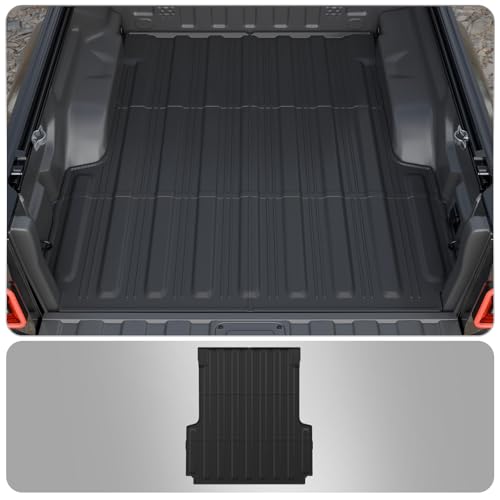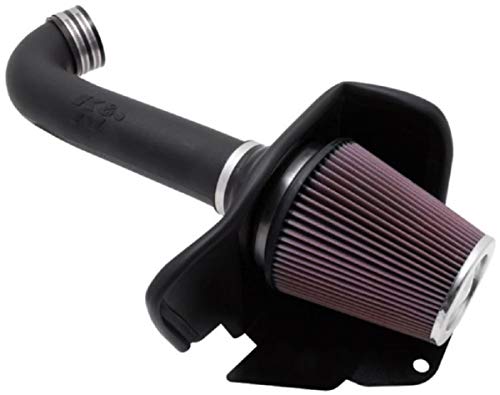How Much Does A Jeep Top Weigh: Unveiling the Weight’s Secrets
A Jeep top typically weighs between 50 to 75 pounds. Introduced by Willys-Overland Motors in 1941, the Jeep has become a popular off-road vehicle known for its exceptional capability and versatility.
One of the key features of a Jeep is its removable top, which allows users to enjoy open-air driving experiences. However, many Jeep owners may wonder about the weight of the top. The weight of a Jeep top can vary depending on the specific model and material used.
Understanding the weight of the top is important for both transportation purposes and ensuring the structural integrity of the vehicle. We will explore the factors that determine the weight of a Jeep top and provide some insights for Jeep enthusiasts. So, let’s delve into the details and find out how much a Jeep top really weighs.
Importance Of Knowing The Weight Of Jeep Tops
Knowing the weight of Jeep tops is essential for a variety of reasons. First, it helps in enhancing off-road performance by ensuring the vehicle remains stable and balanced. Secondly, understanding the weight of the top contributes to fuel efficiency as excessive weight can decrease mileage.
Thirdly, safety considerations play a crucial role, as the weight distribution affects the vehicle’s agility and ability to withstand off-road challenges. By being knowledgeable about the weight of Jeep tops, drivers can make informed decisions about modifications and additional equipment.
So, it is vital for Jeep enthusiasts to have a clear understanding of the weight of their tops, allowing them to maximize their off-roading experiences and prioritize vehicle safety.
Factors Affecting The Weight Of Jeep Tops
Jeep top weight varies depending on material composition, design features, additional accessories, and type of Jeep model. Different materials, such as aluminum or fiberglass, can affect the weight of the top. Design features like built-in racks or sunroofs can add extra weight to the top.
Additional accessories like roof racks or lights can also contribute to the overall weight. Lastly, the type of Jeep model plays a role as well, as larger vehicles may require heavier tops to ensure stability. Taking all these factors into consideration, it’s important to determine the weight limits of your Jeep and choose a top that is within those limits to ensure safe and efficient driving.
Comparing Different Types Of Jeep Tops
Comparing different types of Jeep tops, we can explore their weight range and variations. Soft tops, for instance, have their own pros and cons. Some popular soft top models include Xprite and Bestop. Moving on, hard tops also come with their weight range and variations.
While providing better insulation, they might be heavier and more difficult to remove. Examples of popular hard top models are the Mopar and Smittybilt. Finally, hybrid tops combine the advantages of both soft and hard tops. They offer versatility and convenience, but their weight can vary depending on the materials used.
Some widely recognized hybrid top models include the Bestop Trektop NX and the Smittybilt Hybrid Soft Top. With these different options available, Jeep owners can choose a top that suits their preferences and needs.
Ways To Reduce The Weight Of Jeep Tops
Jeep tops can vary in weight depending on the materials used and additional accessories attached. To reduce the weight of a Jeep top, consider using lightweight materials that are still durable and weather-resistant. These materials can include aluminum or fiberglass, which are much lighter than traditional steel tops.
Another way to reduce weight is by opting for a streamlined design that eliminates unnecessary bulk and reduces drag. By removing any unnecessary accessories such as roof racks or additional lighting, you can further reduce the weight of the Jeep top.
These simple modifications can help improve fuel efficiency, handling, and overall performance without compromising on the functionality and style of the Jeep Top.
Understanding The Impact Of Jeep Top Weight On Performance
Jeep tops come in various weights, which can have a significant impact on the vehicle’s performance. When considering off-road capabilities, it’s crucial to understand how the weight of the top can affect stability. The added weight can alter the vehicle’s center of gravity, potentially compromising its balance on uneven terrain.
Additionally, the suspension system of the Jeep needs to be capable of handling the extra load. If the top is particularly heavy, it may put a strain on the suspension, affecting the overall handling and ride quality. Moreover, the towing capacity of the Jeep may be impacted by the weight of the top.
It is essential to consider the weight limit of the manufacturer’s towing specifications when towing with a top installed. Understanding the weight implications of a Jeep top is crucial for maintaining optimal performance and safety off-road.
Tips For Handling And Installing Jeep Tops
Handling and installing Jeep tops require proper lifting and securing techniques, along with recommended tools and equipment. The weight of a Jeep top can vary depending on the material, but it is essential to ensure that you have assistance from others when installing it.
To lift the top, use the appropriate lifting technique while avoiding strain on your back. Secure the top properly to prevent it from shifting or coming loose during rides. Having the right tools, such as ratchet straps and bungee cords, will make the installation process easier and more efficient.
It is also crucial to follow any specific instructions provided by the manufacturer for your specific Jeep top model. Taking precautions and following these tips will help you handle and install Jeep tops safely and effectively.
Frequently Asked Questions On How Much Does A Jeep Top Weigh
How Much Does A 4 Door Jeep Soft Top Weigh?
A 4-door Jeep soft top usually weighs around 70-100 pounds.
How Much Does A Jeep TJ Top Weigh?
The weight of a Jeep TJ top is approximately 75 pounds or 34 kilograms.
How Much Does A Gladiator Hardtop Weigh?
The weight of a Gladiator hardtop is (insert weight here).
How Much Does A Jeep 2 Door Soft Top Weigh?
A Jeep 2-door soft top weighs approximately [insert weight in pounds/kilograms].
How Much Does A Jeep Top Weigh?
The weight of a Jeep top can vary depending on the model and material used but typically ranges from 50 to 150 pounds.
Are Jeep Hard Tops Heavier Than Soft Tops?
Yes, Jeep hard tops are generally heavier than soft tops due to their construction with thicker and heavier materials.
What Are Jeep Tops Made Of?
Jeep tops are commonly made of materials like fiberglass, hard plastic, vinyl, or fabric.
Conclusion
To sum it up, the weight of a Jeep top depends on various factors such as the type of top, material used, and additional accessories. Hardtops are generally heavier than soft tops, with fiberglass tops weighing more compared to aluminum or steel ones.
If you’re concerned about weight, it’s important to consider the advantages and disadvantages of each type. Soft tops are lighter and easier to remove, allowing for an open-air driving experience, but they may not be as durable or offer the same level of insulation as a hardtop.
Regardless of the type, it’s crucial to choose a top that matches your Jeep’s weight capacity and supports safe driving. Adequate maintenance and consultation with a trusted mechanic can help ensure your Jeep is balanced and optimized for performance. So, whether you’re planning to upgrade your Jeep top or simply curious about its weight, understanding these factors will assist you in making the right decision for your off-roading adventures.




